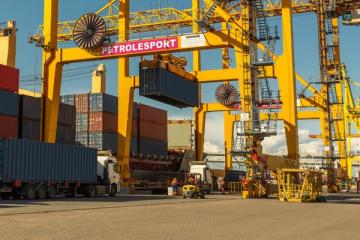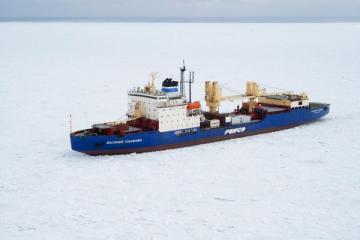
The ÖBB Rail Cargo Group (RCG) and Kombiverkehr Deutsche Gesellschaft für kombinierten Güterverkehr mbH & Co. KG (Kombiverkehr) have further upgraded their existing rail freight transport service between the Hungarian capital Budapest and Neuss in Germany for their customers. From now on, six return trips per week, spread over six working days, will connect these two important European economic centres by rail.
Three services operated in partnership by Kombiverkehr and Rail Cargo Operator also connect the terminals in Wels and Wien Süd in both directions. The other three connections are operated directly and without any intermediate stops by RCG from Budapest to Neuss and back. In total, this service allows approximately 180 loading units per week and direction to be transported by eco-friendly rail and eliminates the need for around 17,000 truck journeys each year.
International intermodal network
The two routes - Budapest-Vienna-Wels-Neuss and back and Budapest-Neuss and back - are crucial corridors in the intermodal network operated by the two partners, not least with regard to incoming and outgoing consignments at the dispatch and destination terminals.
“Due to its location on the banks of the Rhine, the Neuss Trimodal Terminal is more than just an important local access point - by road as well as by water - to our extensive intermodal network for our customers from the haulage and logistics sectors. With gateway connections to and from various parts of the port in Rotterdam, we also offer the ideal conditions for handling particularly long transport routes with transitions to the deep-sea and short-sea services offered by a large number of shipping companies,” explains Alexander Ochs, Managing Director of Kombiverkehr.
It is now possible to access South Eastern Europe from Budapest on a daily basis thanks to a daily service to Turkey. Furthermore, the hub in Budapest offers a connection to China three times a week via the New Silk Road. What’s more, the terminals in Wels and Wien Süd offer even more opportunities for networking to the respective economic areas and their connections to international transport networks.
“The direct connection to our largest terminal, BILK, in Budapest, means that we not only offer comprehensive terminal services, but also efficient onward distribution in our comprehensive network across the entire Eurasian continent,” says Bernhard Ebner, Head of the ÖBB RCG Business Unit Intermodal.
Rail is eco-friendly and an important part of the system
At present, approximately 10% of all CO2 emissions come from the transport sector. Every tonne of freight transported by road produces around 40 times more CO2 than if it were shipped by rail. More freight transports must therefore be shifted from road to rail if the European climate protection goals are to be achieved. Intermodal freight services, such as the one between Budapest and Neuss, make a significant contribution towards this shift in emphasis and demonstrate the potential of cooperation between logistics service providers.
Even at the height of the Corona crisis, RCG and Kombiverkehr maintained intermodal freight transport and with it the flow of goods on this important route between Budapest and Neuss. This demonstrates once again that transport by rail is not only relevant to the environment and climate, but above all has a bearing on the system and supply.





